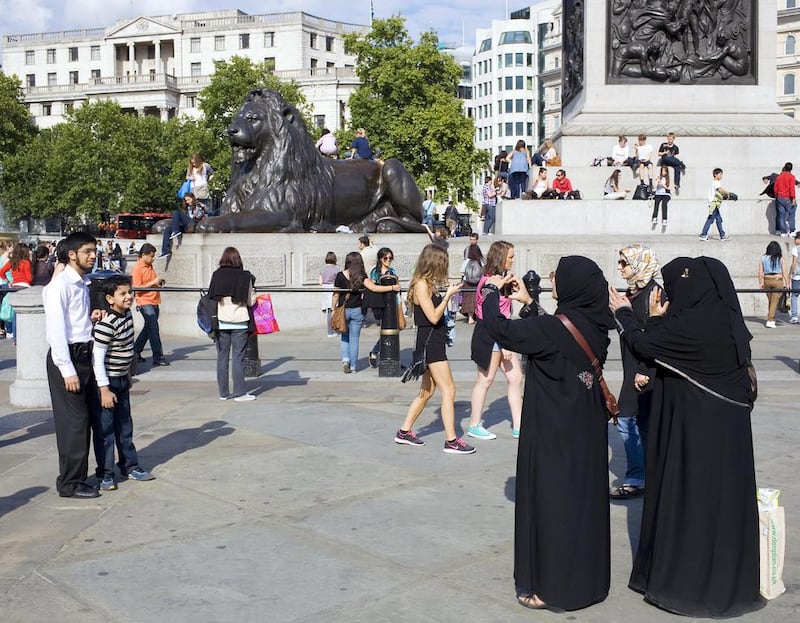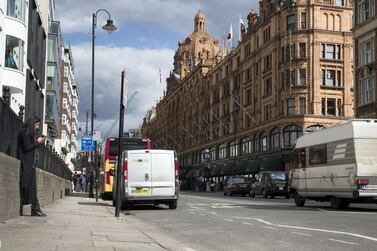A senior British police officer has sought to reassure Arab tourists visiting London after the fatal stabbing of an Omani student in Knightsbridge.
"I want to reassure people that London is still a very safe city, one of the safest cities in the world, particularly for our friends coming from the UAE," Mark McEwan, a Metropolitan Police commander, told The National on Tuesday.
Mr McEwan, was speaking at a Dubai crime prevention event after the killing of Mohammed Al Araimi.
He said attacks on Emiratis and Arabs were isolated and perpetrated by lone suspects.
Al Araimi, the son of a prominent businessman in Oman, was walking home from a restaurant with a Bahraini friend on Friday when they were approached by two men who tried to rob them. An investigation is continuing.
Mr McEwan said his participation in the Dubai Police conference, which brought together top law enforcement officials from across the globe, was unrelated to the killing on Friday.
But he said crucial police work has driven down crime in many communities.
“It's very important that we build relations, not just with our own communities and throughout London but across the world," Mr McEwan said.
"And it's important that we encourage further learning from each other, further information sharing, working together and building a learning community internationally."
At the event in Dubai Festival City, Dubai Police shared initial results of its AI-based project called Oyoon, or Eyes, that connects thousands of CCTV cameras across the emirate.
It involves linking cameras run by traffic authorities, public transport operators and tourist attractions.
“Cameras using automatic facial recognition technology were very successful in achieving a crackdown on crime,” said Maj Gen Khalil Al Mansouri, Assistant Chief of Dubai Police.
Marc Goodman, a security adviser who has worked as "resident futurist" for the FBI, said advances in technology left criminals nowhere to turn and helped the public to feel safer.
“Dubai Police is very focused on crime prevention and cyber crime, and has made great advances," Mr Goodman said.
He said Dubai was using technology to protect the public and give people the tools they needed to protect themselves.
“These services bring police into the neighbourhoods and closer to people who don’t want to see police face-to-face," Mr Goodman said.








